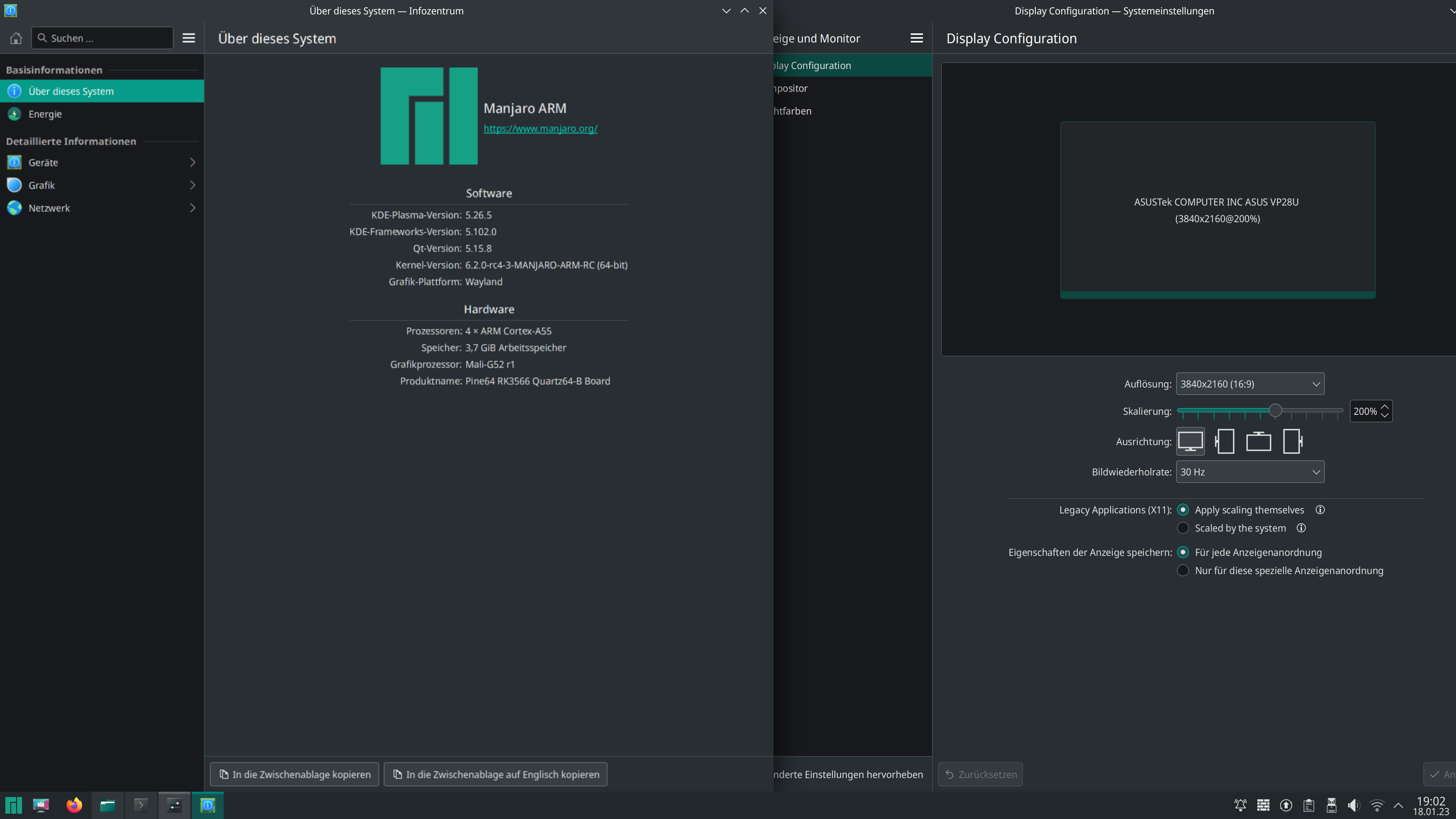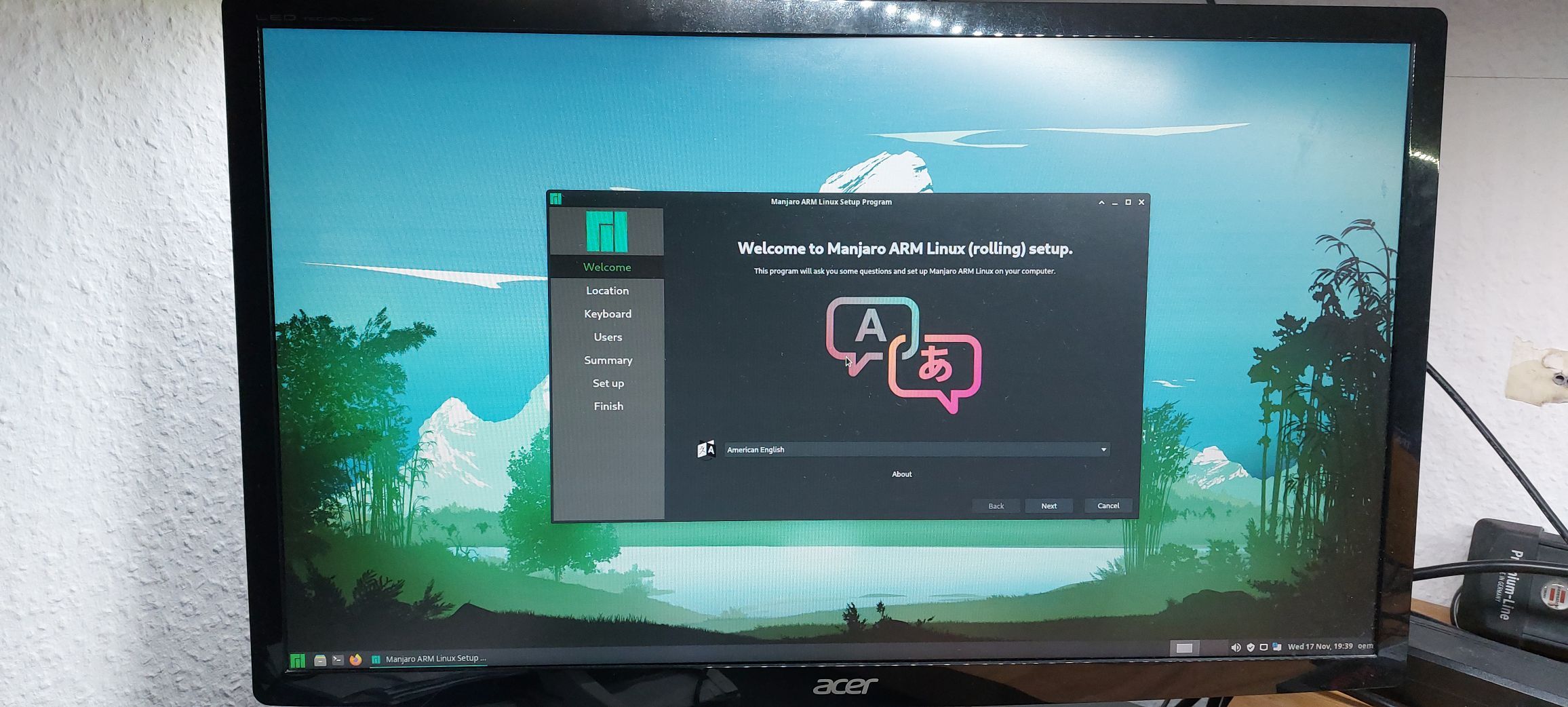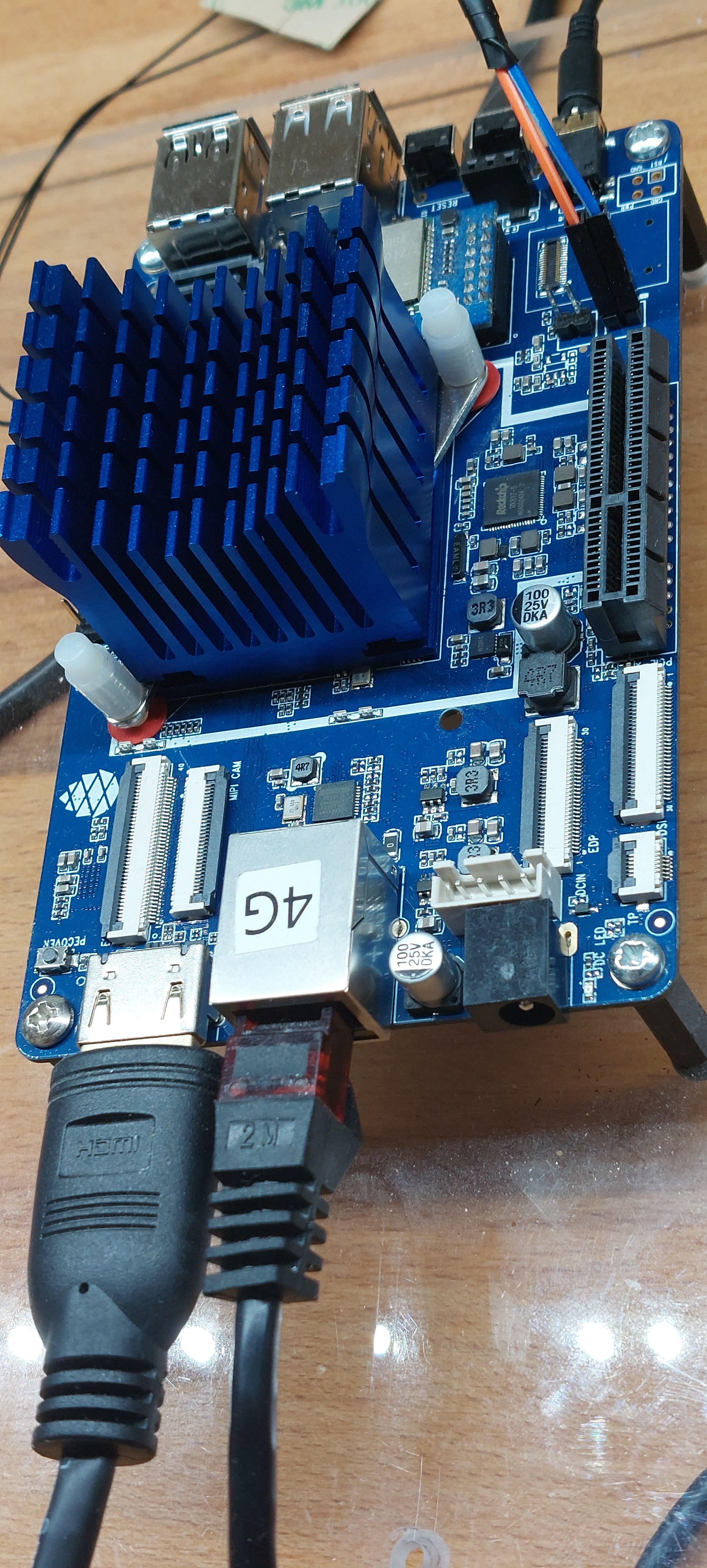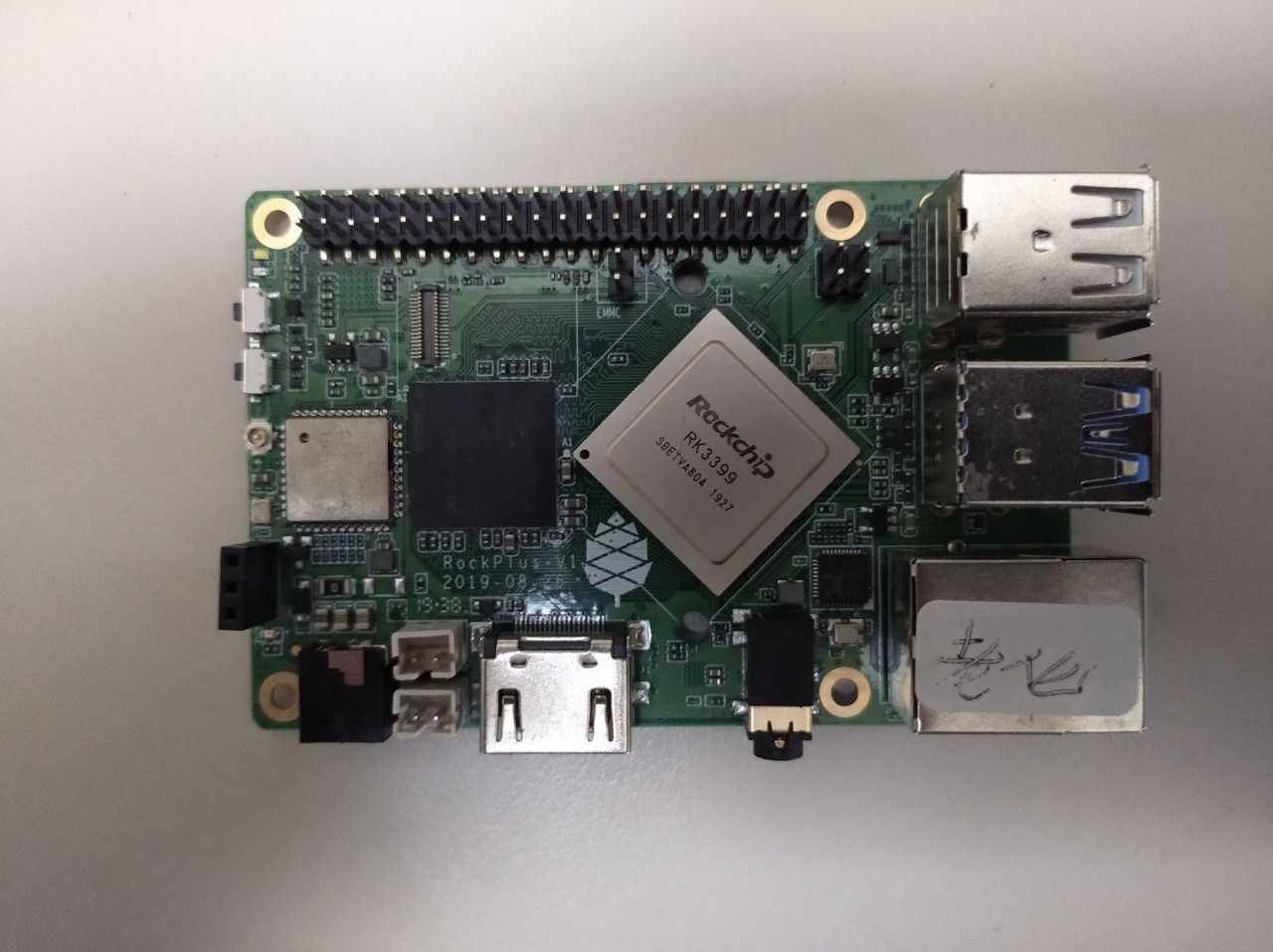Mal beim Kaffee eben ausprobieren.
Die Releases findet man hier -> https://github.com/Plebian-Linux/quartz64-images/releases
Und ein paar Anmerkungen zum Image -> https://github.com/Plebian-Linux/quartz64-images/blob/main/RUNNING.md
User:pleb
PW: pleb
Passwort muss wie gewohnt beim ersten Start geändert werden.
Danach habe ich das Debian aktualisiert
apt update && apt upgrade
Danach haben wir dann einen
root@plebian-quartz64b:~# uname -a
Linux plebian-quartz64b 6.1.0-1-arm64 #1 SMP Debian 6.1.4-1 (2023-01-07) aarch64 GNU/Linux
recht aktuellen Kernel. Die Debian Version ist
root@plebian-quartz64b:/etc# cat debian_version
bookworm/sid
Bookworm ist das kommende Debian 12, das soll so ca. im März(?) released werden.
Mit blkid werden alle angeschlossenen Laufwerke angezeigt.
root@plebian-quartz64b:/etc# blkid
/dev/nvme0n1p1: UUID="497aa9d6-2e0c-4927-bb8f-9927970b1abe" BLOCK_SIZE="4096" TYPE="ext4" PARTUUID="bd856e70-94c0-3345-a9d6-7ff080b5a2e0"
/dev/mmcblk0p3: LABEL="root" UUID="da21d2fe-1093-46d2-bd96-5fb6b11e07eb" BLOCK_SIZE="4096" TYPE="ext4" PARTLABEL="root" PARTUUID="3fbd2cf5-e08d-4f39-8ca4-9fb5cff746df"
/dev/mmcblk0p1: PARTLABEL="idbloader" PARTUUID="3eac6306-dee4-4c0c-9cfa-2d610b74b61b"
/dev/mmcblk0p2: PARTLABEL="uboot" PARTUUID="7129c8a9-86f4-4807-be66-7d12398c6e9a"
/dev/sda4: LABEL="linux-root" UUID="b1612f09-7ae0-4217-be0e-bdc2e51248d1" BLOCK_SIZE="4096" TYPE="ext4" PARTLABEL="linux_root" PARTUUID="cdc03a35-d726-48f6-8bef-918981debbf6"
/dev/sda2: SEC_TYPE="msdos" LABEL_FATBOOT="boot-efi" LABEL="boot-efi" UUID="6891-ACCB" BLOCK_SIZE="512" TYPE="vfat" PARTLABEL="boot_efi" PARTUUID="0af3de6b-3b38-42f3-ae0c-336c5d39c874"
/dev/sda3: LABEL="linux-boot" UUID="e64ed73c-b603-43af-851c-d5eef81a1aa9" BLOCK_SIZE="1024" TYPE="ext4" PARTLABEL="linux_boot" PARTUUID="b3b30dbb-4dcb-4652-aef1-ebc720eb0e59"
/dev/sda1: PARTLABEL="loader1" PARTUUID="86d433a9-c91b-48aa-9867-36ef588a600f"
Man sieht meine angeschlossene NVMe SSD und die Platte am USB3.
Man hat eine HDMI Ausgabe, Netzwerk ist klar, der WiFi-Chip geht nicht. Dazu steht im Readme
Plebian (or Debian, for that matter) does not yet properly package the wireless firmware needed for the Model B or SOQuartz's Wi-Fi chip. Therefore, Wi-Fi won't work out of the box.
Müsste man sich also mit beschäftigen....
Ansonsten macht das für mich auf den ersten Blick einen soliden Eindruck.
 F FrankM hat dieses Thema am angepinnt
F FrankM hat dieses Thema am angepinnt




